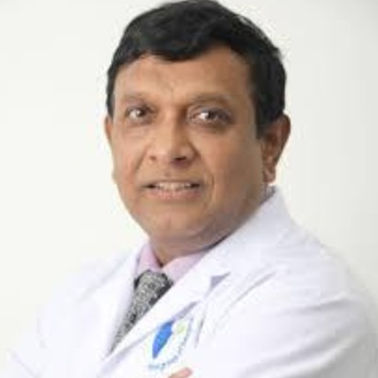Your Health, Your Priority: Why a Gynaecologist is Essential
Discover why a gynaecologist is vital for lifelong women’s health. Learn about preventive care, sexual well-being, and when to schedule visits.

Written by Dr. J T Hema Pratima
Reviewed by Dr. Shaik Abdul Kalam MD (Physician)
Last updated on 13th Jan, 2026

Introduction
A gynaecologist is far more than a doctor you see for a Pap smear or during pregnancy. They are a dedicated partner in your lifelong health journey, specialising in the unique and complex female reproductive system. Understanding the profound importance of a gynaecologist is the first step towards taking control of your women’s health. This specialist provides essential preventive care, manages conditions specific to people with uteruses, and offers a confidential space to discuss intimate health concerns. This article will explore the critical role gynaecologists play at every stage of life, from adolescence through menopause and beyond. We’ll demystify what happens during a visit, outline the key reasons for regular check-ups, and empower you to prioritise your well-being with confidence.
More Than a Doctor: Understanding the Gynaecologist's Role
A gynaecologist is a physician who specialises in the female reproductive system, which includes the uterus, ovaries, fallopian tubes, cervix, and vagina. Their expertise covers a wide range of functions, from diagnosing and treating diseases to providing preventive health screenings and counselling on healthy lifestyle choices. They are trained to handle both routine care and complex medical and surgical issues related to women’s reproductive organs.
Many people often confuse the terms gynaecologist and obstetrician. While there is significant overlap, and many doctors are certified in both (OB/GYNs), there is a distinct difference. A gynaecologist focuses on all aspects of reproductive health outside of pregnancy. An obstetrician, on the other hand, specialises in pregnancy, childbirth, and the postpartum period. So, while your gynaecologist can provide your annual well-woman exam, you would typically see an obstetrician for prenatal care during a pregnancy.
Lifelong Care: The Gynaecologist at Every Age and Stage
The care provided by a gynaecologist is not one-size-fits-all; it evolves to meet your changing needs throughout your life.
Adolescence and Early Womanhood (Teens to 20s)
The American College of Obstetricians and Gynaecologists (ACOG) recommends that adolescents have their first gynaecologic visit between the ages of 13 and 15. This initial visit often does not include a pelvic exam but is crucial for building a trusted relationship. It’s a chance to discuss topics like menstrual cycles, vaccination (like the HPV vaccine), healthy relationships, sexuality, and safe practices. Establishing care early sets the foundation for a lifetime of proactive health management.
The Reproductive Years (20s to 40s)
This is often when care becomes more routine, including annual well-woman exams. These visits are central to preventive care, featuring screenings like Pap smears and clinical breast exams. This stage also heavily involves discussions about family planning and contraception, management of conditions like PCOS or endometriosis, and prenatal care for those who become pregnant. It’s a period of active management of reproductive and sexual health.
Perimenopause, Menopause, and Beyond (40s+)
As women approach their late 40s and 50s, the body undergoes significant hormonal shifts. A gynaecologist is an invaluable guide through perimenopause and menopause, helping manage symptoms like hot flushes, mood changes, and vaginal dryness. They also emphasise the increased need for cancer screenings (e.g., mammograms) and discuss bone density health to prevent osteoporosis. Gynaecologist for menopause symptoms is a common and important search because this specialist can offer tailored treatment plans, including hormone therapy, to maintain quality of life.
Guardian of Prevention: Early Detection Saves Lives
One of the most critical functions of a gynaecologist is to serve as a first line of defence against serious health issues through early detection.
The Critical Role of the Pap Smear and HPV Test
The Pap smear (or Pap test) is a hallmark of preventive care. It involves collecting cells from the cervix to screen for precancerous or cancerous changes. The human papillomavirus (HPV) test checks for the high-risk strains of the virus that can cause cervical cancer. These screenings have dramatically reduced the mortality rate of cervical cancer. Guidelines suggest most women begin Pap smears at age 21 and continue at intervals recommended by their doctor based on age and history.Consult a Gynaecologist for Personalised Advice
Breast Health Awareness and Clinical Exams
While self-exams are important for familiarity, a clinical breast exam performed by a gynaecologist is a key component of early cancer detection. They are trained to feel for lumps and look for other changes that might be missed. They also provide guidance on when to start getting mammograms—typically starting at age 40, or earlier if you have a family history—and can refer you for imaging. If you notice any persistent changes in your breasts, it’s crucial to consult a doctor. For convenient follow-up, you can consult a doctor online with Apollo24|7 for an initial evaluation and guidance on next steps.
Beyond Biology: Addressing Mental and Sexual Well-being
A gynaecologist’s purview extends beyond physical biology to encompass your overall mental and sexual wellness.
A Safe Space for Sensitive Conversations
The gynaecologist’s office is designed to be a judgment-free zone. It is a place where you can openly discuss sensitive topics you might hesitate to bring up elsewhere. This includes issues like low libido, painful intercourse, urinary incontinence, mental health struggles related to hormonal changes, or concerns about abusive relationships. This safe space for sensitive conversations is a unique and vital aspect of their care.
Managing Sexual Health and Dysfunction
Gynaecologists play a central role in sexual health management. They conduct testing and treatment for sexually transmitted infections (STIs), provide counselling on safe sex practices, and address sexual dysfunction. Conditions like vaginismus, dyspareunia (painful sex), or concerns about sexual satisfaction are all within their scope of practice. They can offer solutions, therapies, or referrals to specialists to help improve your sexual well-being.
Navigating Common Concerns: When to Schedule a Visit
While annual visits are standard, certain symptoms warrant scheduling an appointment outside your regular check-up.
Menstrual Irregularities and Pain
Extremely heavy bleeding (soaking through a tampon or pad every hour), periods that last longer than a week, severe cramps that don’t respond to over-the-counter medication, or missed periods (when not pregnant) are all valid reasons to see a gynaecologist for menstrual problems. These could be signs of conditions like fibroids, endometriosis, or hormonal imbalances that require medical attention.
Family Planning and Contraception Counselling
Whether you are considering starting a family or want to prevent pregnancy, your gynaecologist is your best resource. They provide contraception counselling to help you choose the right method—from pills and IUDs to implants—based on your health and lifestyle. For those trying to conceive, they can offer preconception guidance, evaluate fertility, and provide treatments or referrals to a fertility specialist if needed.
Breaking the Stigma: Making Your Appointment with Confidence
It’s normal to feel some anxiety or embarrassment about a gynaecological visit, especially if it’s your first time. Remember that gynaecologists are medical professionals who have seen and heard it all. Their primary goal is your health, not judgment. To feel more comfortable, write down your questions beforehand, be honest about your health and sexual history, and remember that you can always ask for a nurse or chaperone to be present during an exam. Taking this step is a powerful act of self-care.
Conclusion
Viewing your gynaecologist as a lifelong partner in health is one of the most important perspectives you can adopt for your long-term well-being. Their specialised knowledge of the female body empowers them to provide tailored care that general practitioners may not offer. From guiding you through the first steps of adolescence to supporting you through the transitions of menopause, they are an unwavering resource for education, prevention, and treatment. Prioritising these visits is not just about addressing problems—it’s about investing in a healthier, more informed, and empowered future for yourself. Take charge of your health today by scheduling that appointment you’ve been putting off. If you’re experiencing symptoms or are overdue for a check-up, you can easily book a physical visit to a doctor with Apollo24|7 to find a trusted gynaecologist in your area.Consult a Gynaecologist for Personalised Advice
Consult a Gynaecologist for Personalised Advice

Dr. Asawari Kesari Kapoor
Obstetrician and Gynaecologist
23 Years • M.B.B.S, D.G.O(Mumbai) ,D.G.O (C.P.S), D.N.B (OBGY)
Delhi
Apollo Hospitals Indraprastha, Delhi
(25+ Patients)

Dr. Ashish Kale
Obstetrician and Gynaecologist
19 Years • MBBS, MD (OBG), DNB, MNAMS, Diploma in Endopelvic Surgery, Fellowship in Embryology, Fellowship in ART.
Pune
Apollo Hospitals Pune, Pune

Dr. Vineet Mishra
Infertility Specialist
36 Years • MD, Phd, DSc
Ahmedabad
Apollo Hospitals - Gandhinagar, Ahmedabad, Ahmedabad

Dr. Deepika Negi
Obstetrician and Gynaecologist
11 Years • MBBS,MS OBGYN
Greater Noida
SAMARPIT MEDICLINIC ORTHO and GYNAE CARE, Greater Noida

Dr. Sanjan Das
Obstetrician and Gynaecologist
15 Years • MBBS,MS
Bengaluru
Apollo Clinic, Sarjapur Road, Bengaluru
Consult a Gynaecologist for Personalised Advice

Dr. Asawari Kesari Kapoor
Obstetrician and Gynaecologist
23 Years • M.B.B.S, D.G.O(Mumbai) ,D.G.O (C.P.S), D.N.B (OBGY)
Delhi
Apollo Hospitals Indraprastha, Delhi
(25+ Patients)

Dr. Ashish Kale
Obstetrician and Gynaecologist
19 Years • MBBS, MD (OBG), DNB, MNAMS, Diploma in Endopelvic Surgery, Fellowship in Embryology, Fellowship in ART.
Pune
Apollo Hospitals Pune, Pune

Dr. Vineet Mishra
Infertility Specialist
36 Years • MD, Phd, DSc
Ahmedabad
Apollo Hospitals - Gandhinagar, Ahmedabad, Ahmedabad

Dr. Deepika Negi
Obstetrician and Gynaecologist
11 Years • MBBS,MS OBGYN
Greater Noida
SAMARPIT MEDICLINIC ORTHO and GYNAE CARE, Greater Noida

Dr. Sanjan Das
Obstetrician and Gynaecologist
15 Years • MBBS,MS
Bengaluru
Apollo Clinic, Sarjapur Road, Bengaluru
More articles from General Medical Consultation
Frequently Asked Questions
1. When should a girl have her first gynaecologist appointment?
ACOG recommends that adolescents have their first visit between the ages of 13 and 15. This visit is primarily about building a rapport and discussing health, growth, and development, and may not involve a pelvic exam.
2. How often do I need to get a Pap smear?
Current guidelines suggest that women aged 21-29 should have a Pap test every three years. Women aged 30-65 can have a Pap test every three years, an HPV test every five years, or a co-test (Pap and HPV) every five years. Your doctor will recommend the best schedule for you based on your history.
3. What exactly happens during a well-woman exam?
A typical annual exam includes a discussion of your health history and any concerns, a physical exam (checking blood pressure, weight, etc.), a clinical breast exam, and often a pelvic exam. A Pap smear is not required every year but is done as per recommended screening intervals.
4. I’m not sexually active. Do I still need to see a gynaecologist?
Yes. While STI screening and contraception are part of their role, gynaecologists also manage menstrual disorders, hormonal issues, vaccinations (like HPV), and provide essential cancer screenings and preventive health advice unrelated to sexual activity.
5. Is it normal to be nervous about my first pelvic exam?
Absolutely. It’s very common to feel anxious. Communicate your nerves to your doctor; a good gynaecologist will talk you through each step, ensure you are comfortable, and explain what they are doing. Remember, you are in control and can ask to pause or stop at any time.




